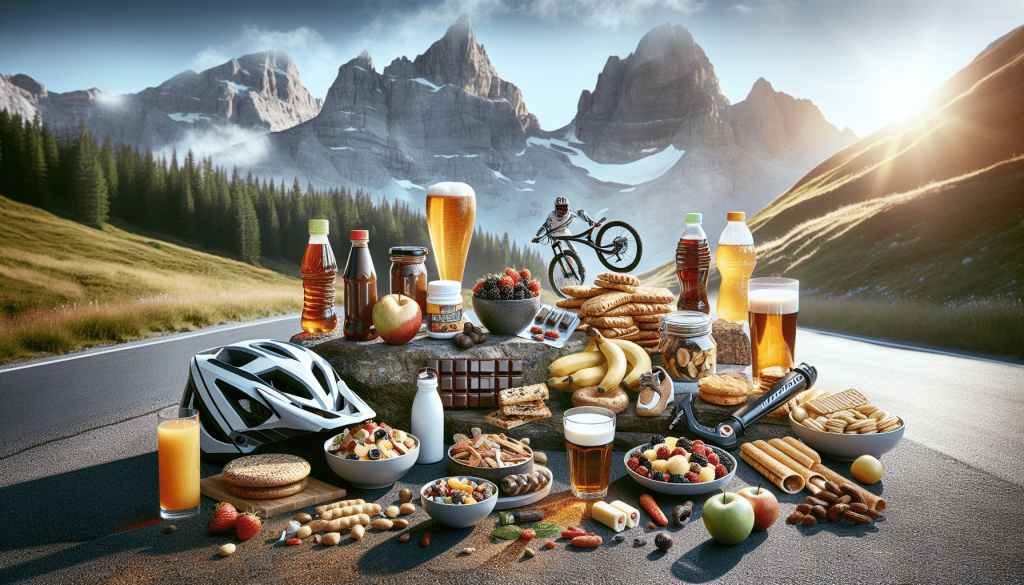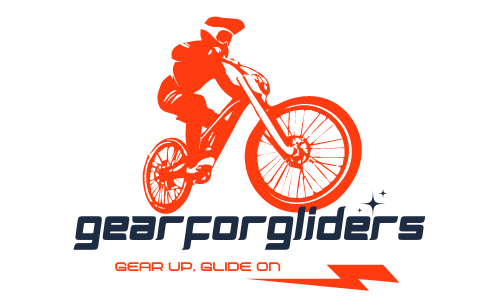Are you curious about what fuels the bodies of professional mountain bikers as they conquer rugged terrains and tackle jaw-dropping trails? Wonder no more, because in this article, we will be uncovering the secrets behind the diets of these elite athletes. From the vital macronutrients to the power-packed snacks that keep them going strong, we’ll explore the essential fuel that keeps pro mountain bikers at the top of their game. Get ready to discover the dietary regimen that fuels their adrenaline-fueled adventures!
Importance of Nutrition for Pro Mountain Bikers
Fueling the Body for Performance
As a pro mountain biker, nutrition plays a vital role in your performance on the trails. Just like a well-maintained bike, your body needs the right fuel to perform at its best. A balanced diet will provide you with the energy and nutrients necessary to conquer challenging terrains, push your limits, and reach your fullest potential.
Recovery and Repair
Mountain biking is an intense sport that puts a significant amount of stress on your muscles, joints, and overall body. Proper nutrition not only helps fuel your performance but also aids in the recovery and repair process. By consuming the right nutrients after a hard ride, you can promote muscle repair, reduce inflammation, and accelerate recovery so that you can quickly get back on the bike and continue pushing your limits.
Boosting Immune System
Maintaining a strong immune system is crucial for pro mountain bikers, as it allows you to stay healthy and consistent in your training and racing schedule. Nutrition plays a key role in boosting your immune system, as certain nutrients, such as vitamins and minerals, support immune function and help prevent illnesses and infections. By prioritizing a nutritious diet, you can fortify your immune system and stay in top form throughout the season.
Maintaining Optimal Weight
Weight management is essential for pro mountain bikers, as excess weight can slow you down and hinder your performance on the trails. By practicing proper nutrition and maintaining a healthy weight, you can improve your power-to-weight ratio, enhance your agility, and maximize your speed and endurance. Eating a balanced and nutrient-rich diet will not only help you achieve your optimal weight but also provide the necessary energy to tackle demanding terrains with ease.
Balanced Macronutrient Intake
Carbohydrates
Carbohydrates serve as the primary source of fuel for your body during intense physical activities such as mountain biking. They provide the energy needed to power through challenging climbs, power up steep descents, and maintain steady endurance. It is crucial to include a variety of carbohydrates in your diet, focusing on both complex carbohydrates found in whole grains and vegetables, as well as simple carbohydrates found in fruits and sports drinks.
Proteins
Proteins play a crucial role in muscle repair and recovery. When you engage in intense mountain biking sessions, tiny muscle fibers break down, and adequate protein consumption is necessary to rebuild and strengthen them. Including complete proteins from sources like lean meats, fish, dairy, and plant-based proteins such as beans and tofu can help optimize muscle repair and promote overall muscle development.
Fats
Contrary to popular belief, fats are an essential part of a pro mountain biker’s diet. Healthy fats provide a concentrated source of energy and help maintain joint health, which is essential for enduring long rides and challenging terrains. Incorporating omega-3 fatty acids from sources like fatty fish, avocado, and nuts can support overall energy levels and minimize joint inflammation, improving your overall performance on the bike.

Carbohydrates for Energy
Complex Carbohydrates
Complex carbohydrates are the backbone of your energy stores and provide a steady release of glucose into the bloodstream, allowing for sustained energy throughout your rides. Whole grains such as brown rice, quinoa, and oats are excellent sources of complex carbohydrates that should be a staple in your diet. These carbohydrates also tend to contain essential vitamins, minerals, and fiber, further supporting your overall health and performance.
Simple Carbohydrates
While complex carbohydrates should form the foundation of your carbohydrate intake, simple carbohydrates can be beneficial for providing quick energy during intense rides. Fruits, such as bananas and oranges, are easily digestible and provide a rich source of natural sugars that can be readily utilized by your muscles. Additionally, sports drinks and energy gels can provide a quick burst of easily accessible energy when needed during a ride.
Glycemic Index
Understanding the glycemic index of carbohydrates can help you make smarter food choices, particularly when it comes to optimizing energy levels. Carbohydrates with a low glycemic index release glucose into the bloodstream more slowly, promoting steady energy levels over an extended period. Examples of low glycemic index foods include whole grains, legumes, and non-starchy vegetables. On the other hand, high glycemic index foods like white bread and sugary snacks provide a quick energy boost but are short-lived and can lead to energy crashes.
Proteins for Muscle Repair
Complete Proteins
Consuming complete proteins, which contain all essential amino acids, is crucial for muscle repair and recovery. Lean meats like chicken, turkey, and fish are excellent sources of complete proteins. If you follow a plant-based diet, combining different plant-based protein sources, such as beans and rice or tofu and quinoa, can help ensure you’re getting the full spectrum of essential amino acids.
Lean Sources of Protein
When choosing protein sources, it’s important to opt for lean options to minimize added fats and promote overall heart health. Grilled chicken or turkey breast, lean cuts of beef, and fish like salmon or trout are excellent choices. Additionally, dairy products such as Greek yogurt and cottage cheese provide a valuable protein boost without excessive fat content.
Adequate Protein Intake
To support muscle repair and growth, it’s essential to consume an adequate amount of protein throughout the day. Aim to include a source of protein in each meal and snack, ensuring a well-distributed intake. As a benchmark, consuming approximately 0.7-1.0 grams of protein per pound of body weight per day is recommended for optimal muscle recovery and repair.

Healthy Fats for Energy and Joint Health
Omega-3 Fatty Acids
Omega-3 fatty acids are a type of healthy fat known for their anti-inflammatory properties and benefits for heart health. Including fatty fish such as salmon, mackerel, and sardines in your diet can provide a rich source of omega-3 fatty acids. These fats not only support energy production but also aid in reducing joint inflammation and improving overall joint health, critical for your mountain biking adventures.
Avocado and Nuts
Avocado and nuts, such as almonds and walnuts, are excellent sources of healthy fats that can provide sustained energy throughout your rides. These fats are calorie-dense and provide a long-lasting source of energy, helping you maintain endurance and stamina on the trails. Additionally, they are packed with vitamins, minerals, and antioxidants that can further support your overall health and well-being.
Avoiding Trans Fats
While healthy fats are beneficial, it’s essential to steer clear of trans fats, which can have adverse effects on your health and performance. Trans fats are often found in processed and fried foods, such as French fries, pastries, and commercially baked goods. These fats not only contribute to weight gain but also promote inflammation and negatively impact your endurance and recovery. Opting for healthier fat sources will provide the energy you need without compromising your long-term health.
Micronutrients and Antioxidants
Vitamins and Minerals
In addition to macronutrients, ensuring an adequate intake of vitamins and minerals is essential for optimal performance and overall health. Vitamins and minerals play a crucial role in various bodily functions, including energy production, immune function, and muscle contraction. Consuming a balanced and varied diet that includes a wide range of fruits, vegetables, whole grains, and lean proteins will help ensure you’re obtaining the necessary micronutrients for optimal performance.
Antioxidant-rich Foods
Antioxidants help protect your body against the damaging effects of free radicals and oxidative stress, which can occur during intense physical activity like mountain biking. Foods rich in antioxidants, such as berries, leafy greens, and colorful fruits and vegetables, can help reduce inflammation, enhance recovery, and support immune function. Including these antioxidant powerhouses in your daily diet can provide valuable health benefits for your mountain biking endeavors.
Hydration
Proper hydration is vital for performance and overall well-being, as even a slight dehydration can negatively impact your physical and mental performance on the bike. Fluids help maintain optimal body temperature, support nutrient delivery to muscles, and promote optimum brain function. Aim to consume water consistently throughout the day, especially during riding sessions, and consider incorporating sports drinks or electrolyte supplements to replenish electrolyte levels lost through sweat.
Pre-Ride Nutrition Strategies
Proper Hydration
One of the most critical aspects of pre-ride nutrition is proper hydration. Start hydrating well before your ride to ensure optimal fluid balance within your body. Aim to consume at least 16-20 ounces of water or a sports drink 2-3 hours before your ride, followed by an additional 8-10 ounces 10-20 minutes before hitting the trails. This will help ensure that your body is adequately hydrated and ready to tackle the challenges ahead.
Light and Digestible Meals
Prioritize consuming a light and digestible meal before your ride to prevent discomfort and improve fuel utilization during your mountain biking session. Opt for easily digestible carbohydrates such as oatmeal, whole grain toast, or a banana. Including a small amount of protein, such as Greek yogurt or a boiled egg, can also help sustain your energy levels throughout the ride.
Carbohydrate Loading
For longer rides or races lasting longer than 90 minutes, carbohydrate loading can help maximize your energy stores. This strategy involves increasing your carbohydrate intake in the days leading up to the ride to ensure your glycogen stores are fully stocked. Focus on consuming complex carbohydrates such as whole grains, fruits, and vegetables in the days leading up to your ride to ensure optimal energy levels.
During-Ride Fueling
Energy Gels and Bars
While riding, fueling with easily digestible carbohydrates in the form of energy gels and bars can help maintain energy levels and enhance endurance. These convenient snacks are designed to provide a quick and accessible source of energy and can be consumed on the go. Look for options that contain a mix of simple and complex carbohydrates to ensure a sustained release of energy throughout your ride.
Electrolyte Supplements
During intense rides, particularly in hot weather or extended durations, replenishing electrolyte levels is crucial to prevent dehydration and maintain proper muscle function. Electrolyte supplements, such as tablets or powders, can be added to your water or sports drinks to ensure optimal electrolyte balance and prevent cramping and fatigue.
Hydration Strategies
Staying hydrated throughout your ride is essential for maintaining performance and preventing dehydration. Carry a water bottle or hydration pack and aim to sip water regularly, especially during longer rides or when riding in hot weather. It’s also helpful to have a plan for refilling your water supply if needed, ensuring you have access to fluids throughout your ride.
Post-Ride Recovery Meals
Protein-rich Foods
After a demanding ride, consuming protein-rich foods is crucial to support muscle repair and recovery. Lean sources of protein such as grilled chicken, fish, or plant-based options like tofu or lentils are ideal choices. Including a protein source within 30-60 minutes post-ride can maximize muscle recovery and promote the rebuilding process.
Carbohydrates for Glycogen Replenishment
Consuming carbohydrates post-ride is essential for replenishing depleted glycogen stores and initiating the recovery process. Including carbohydrates from sources such as fruits, whole grains, or sweet potatoes can help restore energy levels and prepare your body for future rides.
Nutrient Timing
Timing your post-ride meal is crucial to optimize recovery. Aim to consume a balanced meal or snack containing both protein and carbohydrates within 30-60 minutes of completing your ride. This window of opportunity allows for optimal nutrient absorption, ensuring speedy recovery and replenishment of energy stores.
Race Day Nutrition Strategies
Carb-Loading
Carbohydrate loading is particularly important leading up to a race day, as it helps maximize glycogen stores and provides the necessary energy for optimal performance. Start increasing your carbohydrate intake a few days before the race, gradually tapering down your training volume while maintaining a high carbohydrate intake. Focus on consuming easily digestible carbohydrates such as white rice, pasta, and bread.
Pre-Race Meal
The pre-race meal should be consumed around 2-3 hours before the starting time to allow for proper digestion. This meal should consist of easily digestible carbohydrates, lean proteins, and a small amount of healthy fats. Examples of suitable pre-race meals include oatmeal with a banana and a side of Greek yogurt, or a turkey and vegetable wrap with whole grain bread.
On-the-Bike Fueling
During a race, it’s crucial to maintain a consistent fueling strategy to sustain energy levels and optimize performance. This includes consuming energy gels, bars, or other easily digestible carbohydrate sources at regular intervals, typically every 30-45 minutes. Electrolyte drinks or supplements are also important to maintain hydration and prevent cramping during a race. Experiment with fueling strategies during training rides to find what works best for you and be sure to stick to your plan on race day.
By understanding and implementing proper nutrition strategies for pro mountain biking, you can fuel your body for peak performance, ensure a speedy recovery, and maximize your potential on the trails. Remember to prioritize a balanced macronutrient intake, including carbohydrates, proteins, and healthy fats, while also paying attention to the importance of micronutrients and antioxidants. With a well-nourished body, you can conquer challenging terrains, achieve new personal bests, and fully enjoy the exhilarating world of pro mountain biking.

I’m James Gheen, the creator behind GearForGliders.com. As a mountain biking enthusiast, I understand the thrill of gliding through diverse terrains with confidence and agility. That’s why I’ve created this website to provide a comprehensive selection of mountain biking gear tailored to meet the needs of riders who prioritize smoothness, speed, and control. From high-performance bikes to specialized apparel and protective gear, I offer top-quality products that enhance your mountain biking experience. I also provide expert advice, reviews, and tips, creating a community of like-minded individuals who share a passion for the art of mountain biking. Gear up and glide on with GearForGliders.com.

